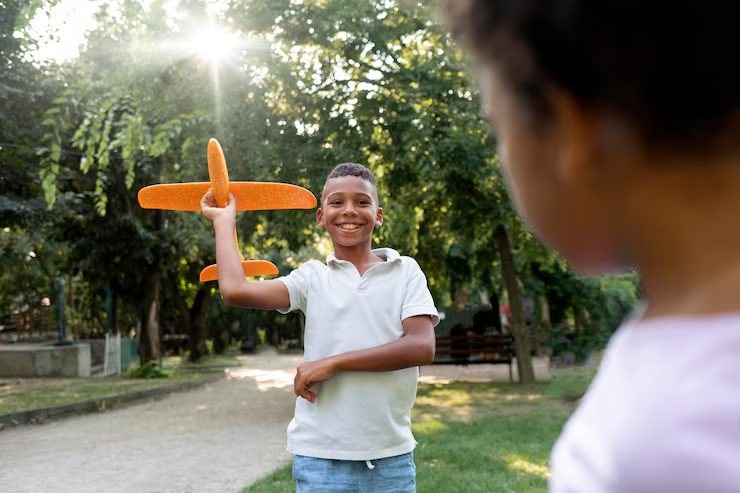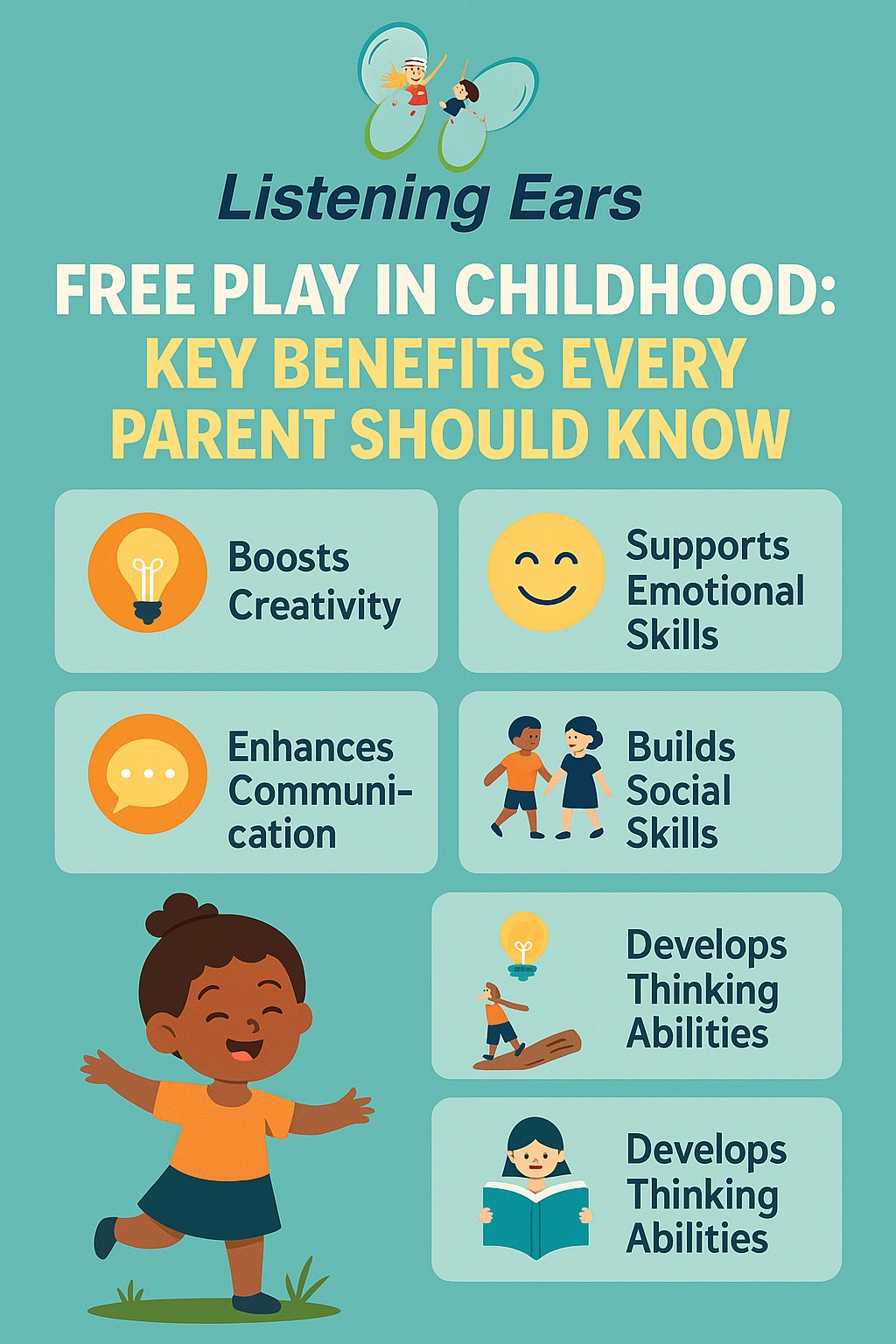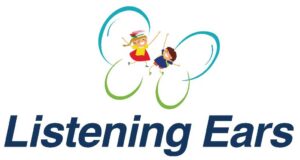
Free play is when children choose their own games and activities without strict rules, and it is essential for their growth and learning. Studies show that kids who get at least 1–2 hours of free play daily develop 20–30% better social, emotional, and problem-solving skills than those who don’t. According to child development experts from the American Academy of Pediatrics, free play also boosts creativity, independence, and confidence, helping children explore the world safely while learning important life skills. For guidance on age-appropriate play activities, parents can find tips to make play both fun and developmental.
Why Free Play Matters
Supports Brain and Cognitive Development
Free play strengthens memory, attention, and problem-solving skills, making children more curious and capable learners. According to child development experts, imaginative play encourages creative thinking and decision-making.
Increase Physical Health
Active play like running, climbing, or jumping helps develop muscles, coordination, and balance, and even improves blood circulation and nerve function.
Improve Social and Emotional Skills
Through free play, children learn sharing, cooperation, and empathy, while also practicing self-regulation and emotional control.

Improve Social and Emotional Skills
Through free play, children learn sharing, cooperation, and empathy, while also practicing self-regulation and emotional control.
How Free Play Helps Children With Special Needs
Free play is particularly beneficial for children with:
- Autism: Supports communication, social interaction, and emotional regulation.
- ADHD: Improves focus, problem-solving, and impulse control.
- Speech delays or hearing challenges: Encourages verbal and non-verbal communication naturally.
Methods to Encourage Free Play
Let Children Lead
Allow kids to choose what, how, and with whom they play. Their creativity thrives when they are in control.
Provide a Variety of Options
Offer different toys, materials, and spaces for play to engage multiple senses.
Teach Simple Rules for Safety
Use strategies like “stop and look” signals during group play or outdoor activities.
Balance Free and Structured Play
While free play is essential, structured activities like storytime, puzzles, or educational games complement it and build specific skills.
Types of Free Play
Physical Play
Running, climbing, jumping, dancing, and ball games improve strength, coordination, and motor skills.
Imaginative or Pretend Play
Using costumes, toy kitchens, doctor kits, or role-playing scenarios develops creativity, social skills, and problem-solving abilities.
Creative Play
Drawing, painting, building blocks, or craft activities enhance fine motor skills and cognitive thinking.
Sensory Play
Playing with sand, water, clay, or textured toys helps children explore their senses and regulate emotions.
Advantages of Free Play
- Improves health: Movement boosts heart, lungs, and nerves.
- Strengthens family bonds: Encourages parents to interact and understand children better.
- Supports emotional growth: Children learn to express feelings safely.
- Develops independence: Kids learn decision-making and self-confidence.
- Enhances creativity: Unstructured play allows children to invent games and ideas.
- Teaches patience and observation: Parents learn to read their child’s needs and cues.
- Supports special needs: Helps children with autism and ADHD improve communication, emotional regulation, and social skills.
Free Play and School Readiness
Free play is crucial for preparing children for school. It helps them:
- Adjust to new environments and routines
- Develop focus, problem-solving, and learning behaviors
- Improve social interactions and teamwork skills
Research shows that children who engage in daily free play are more confident, attentive, and ready to learn in school settings.
Free Play in Childhood: Complete Benefits and Implementation Guide
| Type of Free Play | Activities Included | Skills Developed | Special Benefits for Children With Special Needs |
| Physical Play | Running, climbing, jumping, dancing, ball games | Strength, coordination, motor skills, muscle development, blood circulation, nerve function | ADHD: Improves focus, impulse control, physical energy release |
| Imaginative/Pretend Play | Costumes, toy kitchens, doctor kits, role-playing scenarios | Creativity, social skills, problem-solving, decision-making | Autism: Supports communication, social interaction, emotional regulation |
| Creative Play | Drawing, painting, building blocks, craft activities | Fine motor skills, cognitive thinking, creative expression | Speech delays: Encourages non-verbal expression and communication development |
| Sensory Play | Sand, water, clay, textured toys | Sensory exploration, emotional regulation, tactile awareness | Hearing challenges: Engages other senses, supports natural communication without relying solely on auditory input |
Tips for Parents
- Observe and join occasionally: Helps understand your child’s world.
- Create safe play spaces: Indoors and outdoors where children can move freely.
- Encourage a mix of active and quiet play: Supports both physical and cognitive growth.
- Rotate toys regularly: Keeps children interested and prevents boredom.
- Include everyday items: Household objects like pots or boxes can be turned into fun activities.
From Our Recent Parent Connect Session
At Listening Ears, we recently hosted a “Play and Learn Workshop” at Oishi Care, showing parents how simple, unstructured play can improve attention and speech in young children. The session encouraged hands-on play ideas that families could continue at home.
Our Expertise in Play-Based Therapy
Our specialists at Listening Ears combine speech, occupational, and behavioral therapy through fun play activities that boost learning, communication, and social interaction. Every session is designed to make therapy feel like play — and play feel like growth.
Conclusion
Free play is a vital part of childhood that supports children’s physical, social, emotional, and cognitive development. It also gives parents the chance to connect and engage meaningfully with their children. Ensuring that children have safe and sufficient opportunities for free play is essential for healthy growth and learning. Parents seeking expert guidance can rely on Listening Ears, where trained specialists design age-appropriate play activities to support development and fun.
FAQ's
What is free play?
Free play is when children choose and lead their own games without strict rules, helping them learn and grow naturally.
How much free play should children get?
Experts recommend 1–2 hours daily for toddlers, increasing as they grow older.
How does free play help school readiness?
It improves problem-solving, focus, and social skills, preparing children to adjust and learn in school.
Can free play support children with autism or ADHD?
Yes. Free play helps communication, emotional regulation, and social interaction in children with special needs.
Should parents join in free play?
Yes. Observing or participating helps parents understand and guide their children while strengthening bonds.
Can free play improve creativity?
Absolutely. Unstructured play encourages children to invent games, stories, and ideas, boosting imagination.
Are toys necessary for free play?
Not always. Children can use imagination, household items, or outdoor spaces to play freely.
Where can I get expert guidance for free play activities?
Specialists at Listening Ears can provide safe, fun, and educational play suggestions tailored to your child’s age and needs.
